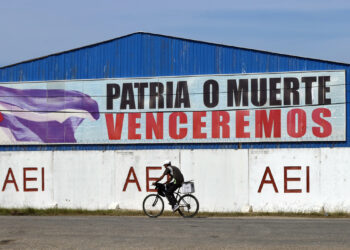The Central American Bank for Economic Integration (BCIE) granted a loan of 46.7 million dollars to Cuba for the production of 200 million COVID-19 vaccines, Cuban media reported this Tuesday.
This is the first line of financing that the BCIE grants to Cuba, an extraterritorial partner of this regional entity, and it will be executed by the United Nations Development Program (UNDP).
Agradecemos la confianza del Gobierno de Cuba en el @BCIE_Org en la lucha contra esta terrible enfermedad. https://t.co/JvwGbtyvdG
— Dante Mossi (@DanteMossi) January 10, 2022
“We are pleased with this first approval of the Republic of Cuba, which we hope will be the first of many. This particular operation will contribute to face the health crisis through the development of vaccines” and “will also contribute to the economic reactivation of the country,” BCIE Executive President Dante Mossi said in a statement.
The loan, of which no information on the financial conditions was given, seeks to “strengthen capacities in the development and production” of medicines, medical equipment and COVID-19 vaccines, of which Cuba has developed three that it is applying en masse to its population and even exporting, albeit to a limited extent.
The “specific objectives” include “achieving higher levels of economic productivity through the development of innovative products of great importance in the context of the COVID-19 pandemic,” the BCIE indicated.
Specifically, the aim is to take advantage of this financing to increase the production of “injectable antibiotics, parenteral solutions (serums), generic and biosimilar drugs, diagnostic kits, medical equipment and specific COVID-19 vaccines,” as well as the acquisition of supplies and medical protection material to prevent contagion.
It also seeks the “modernization of technology” and “diversification to benefit the national health system and that of other countries in the region,” according to the BCIE.
The BCIE is a development bank founded by several Central American countries, although its partners also include Mexico, Colombia, Argentina and Spain, which seeks to promote economic integration and balanced economic and social development in the Central American region.










